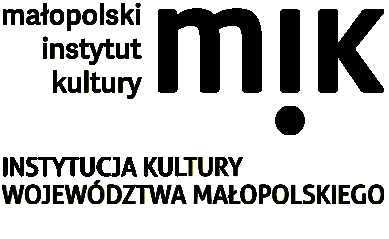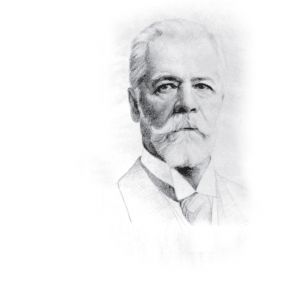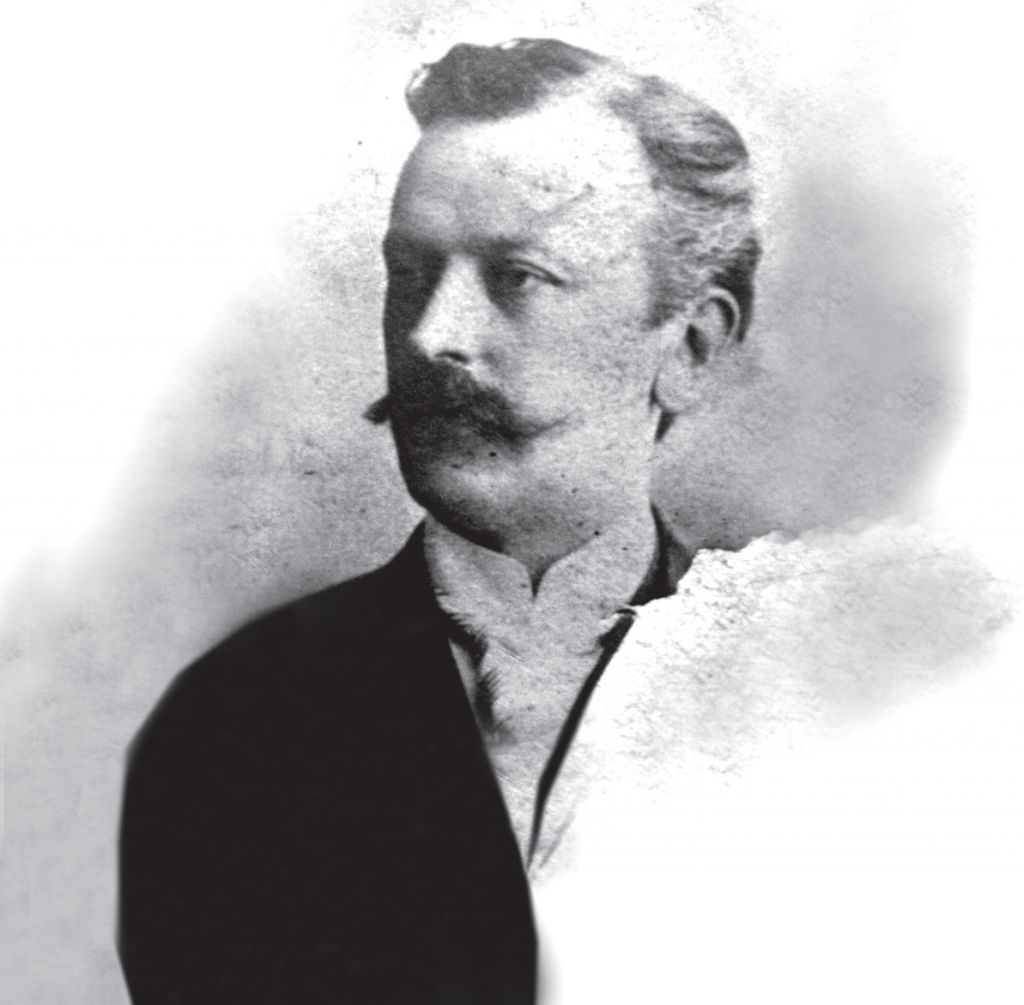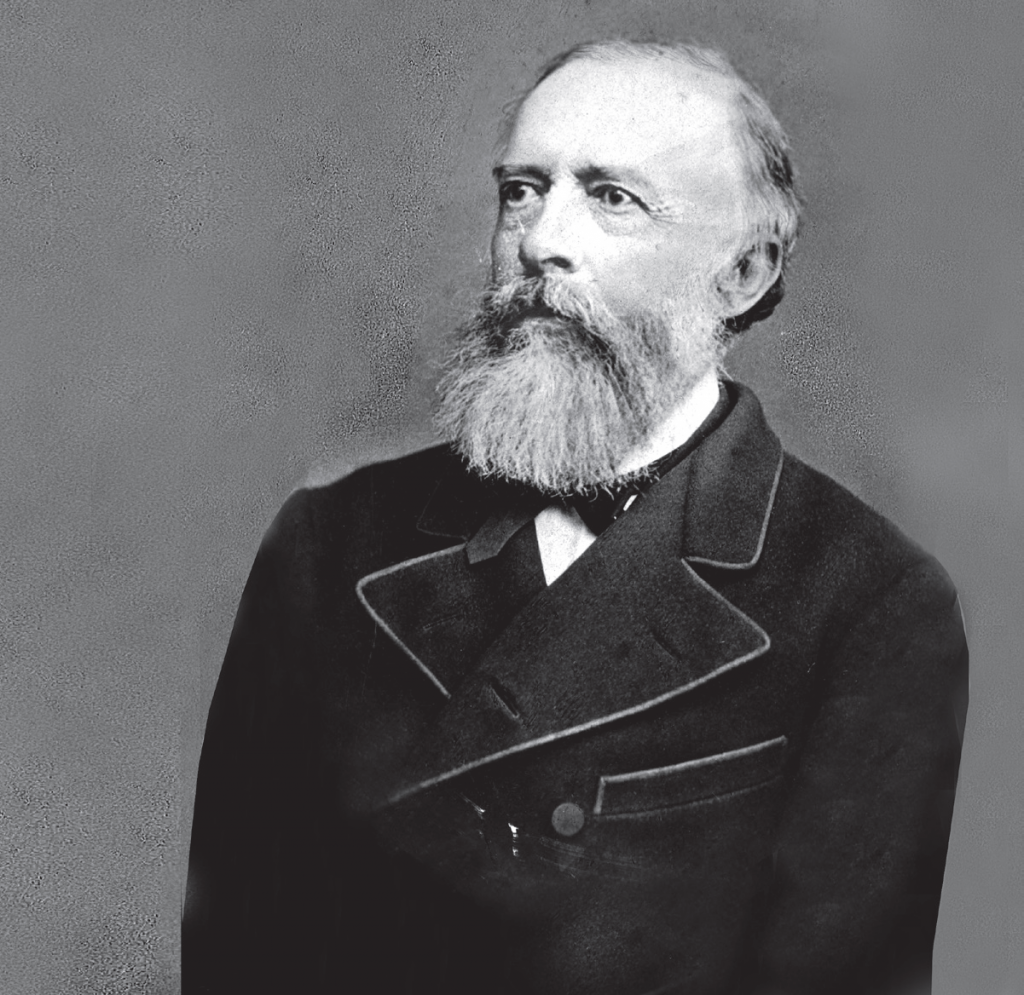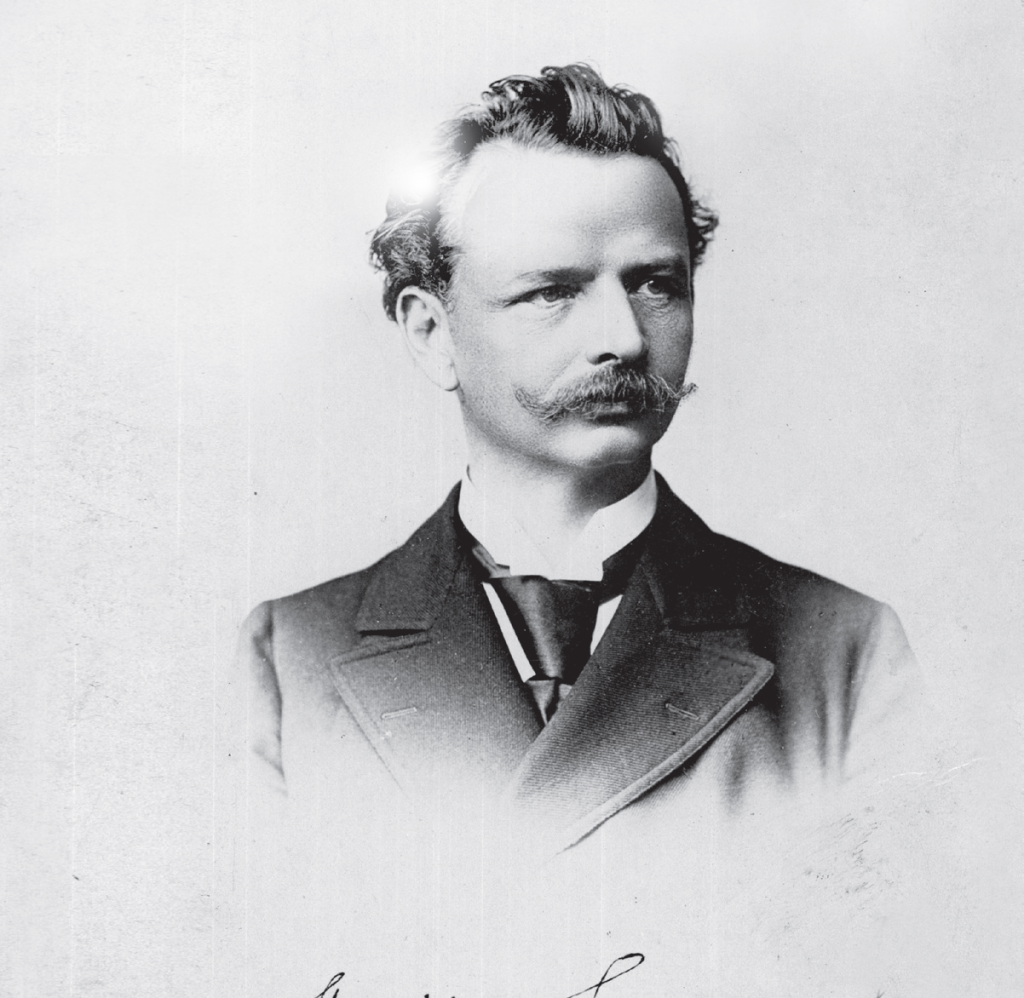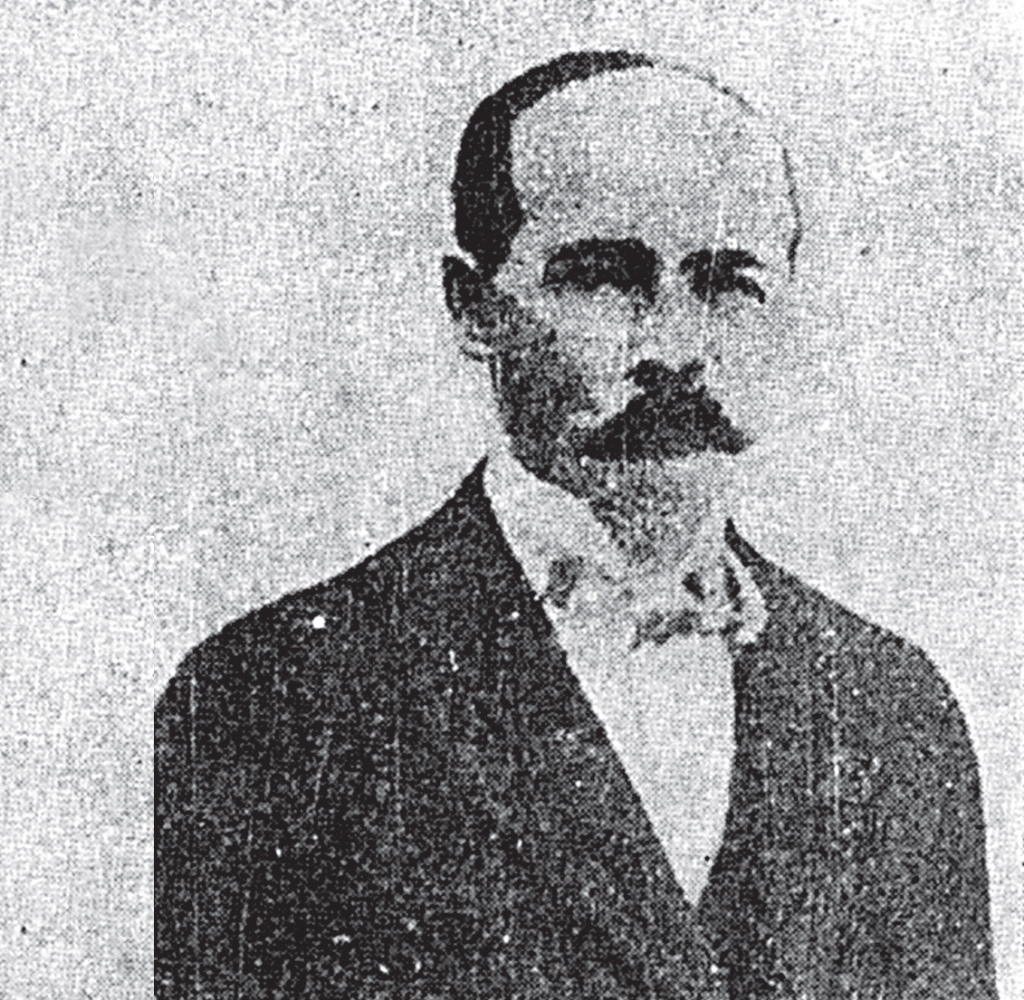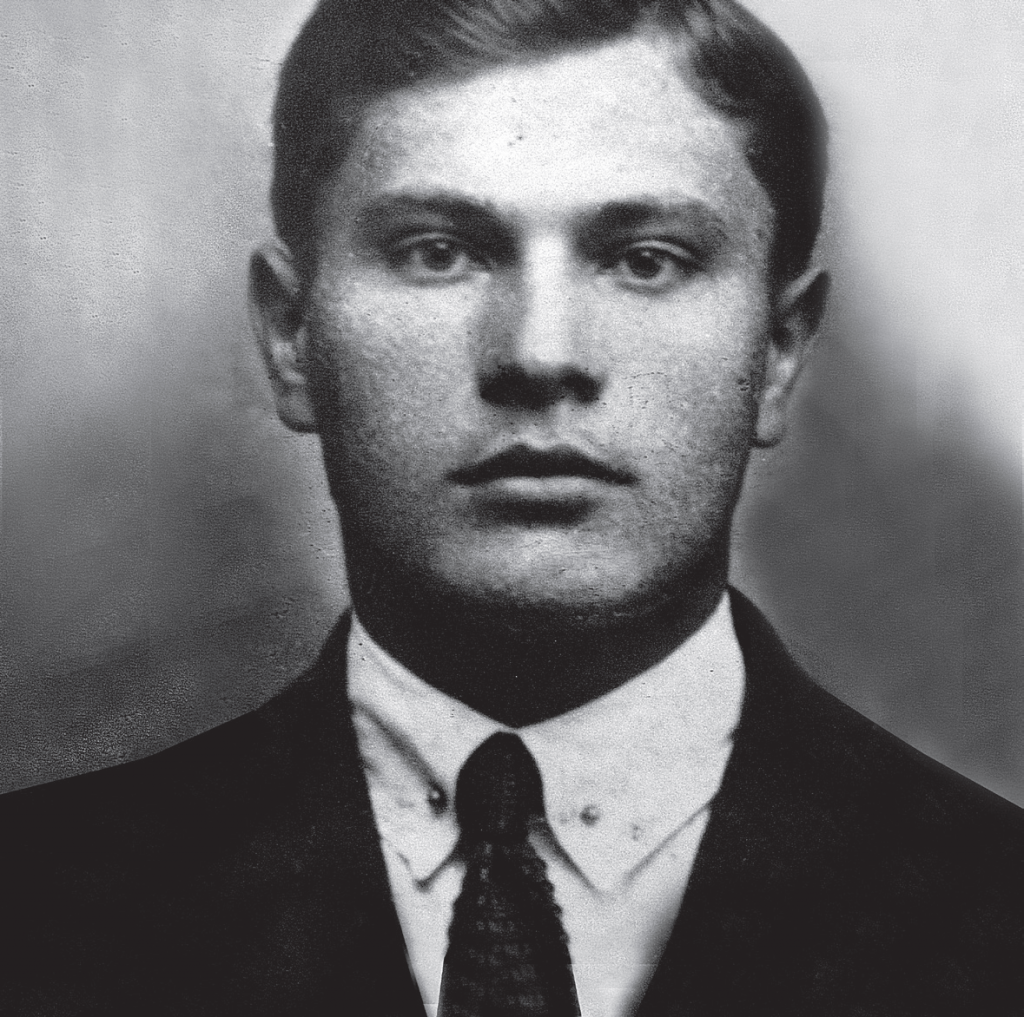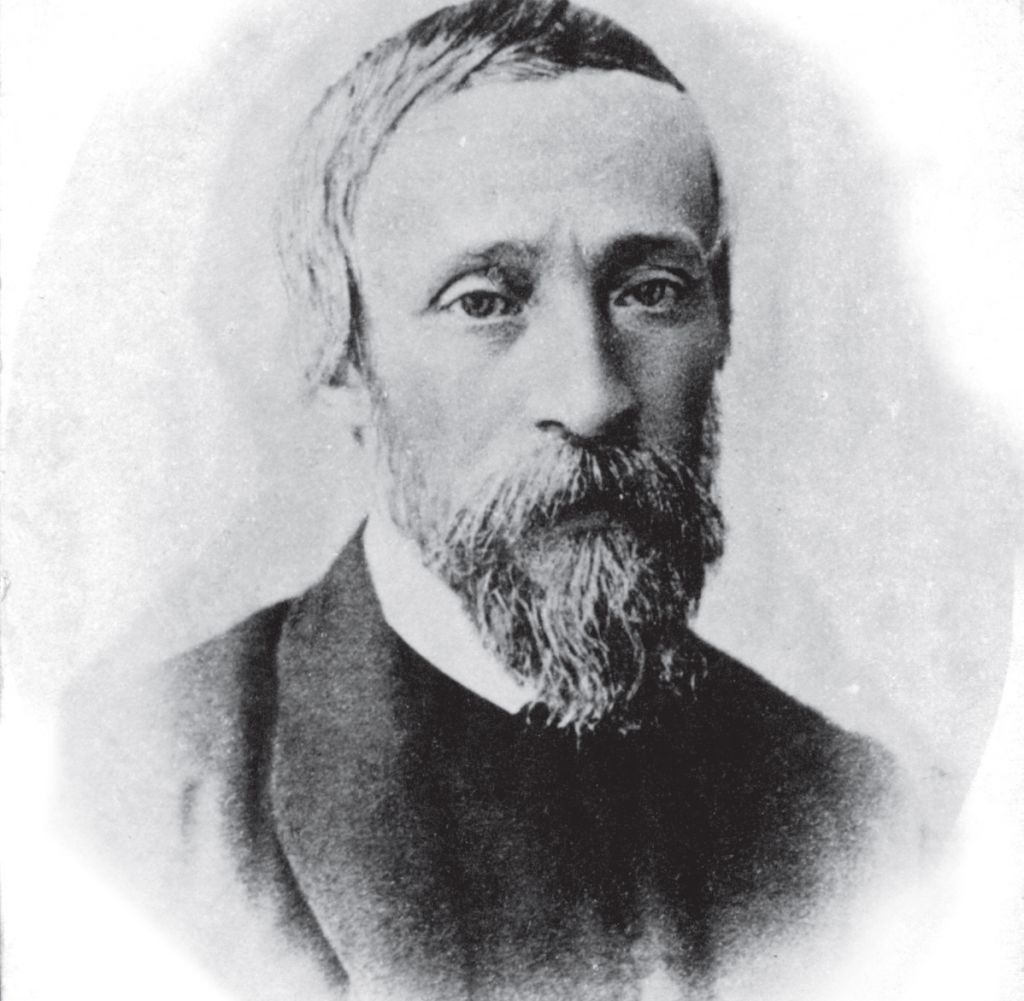Stanisław Jabłonowski was born in Annopol in Volhynia and died in Lviv. His name was established in the history books of the global oil industry due to the event in January of 1852, when he founded first oil mine in the Empty Forest in Siary, near Gorlice. In 1853, his company was noticed by Antoni Schwarz, a councillor of the Kraków Chamber of Commerce, who was touring six districts of West Galicia. This is what he wrote about Jabłonowski’s property: “As production evolves, there is potential industrial value in the natural resource and oil recently discovered at the Kobylanka property of Prince Jabłonowski for production of a mixture known as asphalt. Jabłonowski obtains a previously purified black liquid from the oil. The liquid burns with a clean and beautiful flame and burns out completely. With progress in production, this liquid could completely replace the purified oil currently used in lamps.”
Count Adam Skrzyński was born in Libusza, where oil was extracted from 1856 and where the pioneers of petroleum distillation began their bold work. He died in Marienbad. He opened an oil refinery in his home town. He produced pharmaceutical petrol and sold it to England, Belgium, Germany, Sweden, and France.He displayed his products at the industrial fairs organised in Galicia, including the 1882 fair in Przemyśl. In 1874, he built a railway line to connect the refinery with the main line running through the nearby village of Zagórzany. He imported experienced miners from Canada (including William Henry McGarvey), who popularised the Canadian (stem) drilling method. Not only did Skrzyński take care of his business but he was also an active member of the National Oil Association, which handled the mutual business of all oilmen.
As the son of a wealthy landowner, when he came of age, he received the villages of Polanka and Świerzowa. In 1853, the herd of sheep – a source of considerable income for the Polanka farm – was being decimated by an epidemic. The witch doctor brought in from Bóbrka recommended that the sheep be covered with the black goo, which was plentiful in the local waters. The treatment was unexpectedly successful and Trzecieski turned his attention towards oil. He collected it not only from the waters, but also from excavations. The oil extraction profits made Tytus Trzecieski even wealthier and let him expand as a philanthropist.
Stanisław Szczepanowski was born in Kościan, Wielkopolska, and died in Nauheim. He studied at the Vienna Institute of Technology, the École Centrale des Arts et Manufactures in Paris and studied chemical technology and economics in London. In 1877, he received British Citizenship and was invited on a business trip to India with the Prince of Wales, the heir to the throne and future British King Edward VII. Szczepanowski refused. He chose Galicia instead, where he arrived in 1879 to explore oil and with a social and economic mission. In 1879 he went to Galicia.He founded an oil mine in Słoboda Rungurska, which produced 60 percent of Galician oil. While he grew his business, Szczepanowski also developed social and political activity in Galicia. He built houses for workers, opened cooperative stores and community houses, organised vocational training, and promoted the concept of cooperativeness as the publisher of the Self-Help weekly and president of the Union of Gainful and Economic Associations.
From an early age, Zenon Suszycki was interested in technology, which led him to the Faculty of Mathematics and Physics of Moscow University. He fought in the January Uprising and had to leave abroad after it was suppressed. As an emigrant in Paris, he studied at the École des mines – a mining academy – where he obtained the title of mining engineer in 1870. He returned to settle in Galicia and got involved in the development of a new industrial field, the oil industry. He got a job as manager of the oil mine in Ropianka near Dukla, where he opened Poland’s first vocational drilling school. The candidates had to meet considerable requirements – besides writing, reading, and sketching, they had to document a minimum of two years of experience working in a mine. Over the three-month-long course, the students learned the most important aspects of the machines, as well as their structure and operation. The school also promoted the new hammer drilling method.
Jan Zeh was born in Łańcut and died in Boryslav. In 1830, he started studying pharmacy in Sambir and obtained the title of pharmacy master in 1846 in Vienna. After graduation, he got a job at the Gold Star pharmacy in Lviv. His boss, Piotr Mikolasch, ordered him to work on distilling oil in the pharmacy’s innovative laboratory. In 1848, he was joined by Ignacy Łukasiewicz. The result of their work was the pharmaceutical distillate called Oleum Petrae album. With help from the sheet-metal worker Adam Bratkowski, they managed to light the distillate inside specially made lamps. This was a huge step towards the revolution in the lighting of streets and houses. On 20th March 1853, the window of the Golden Star pharmacy was illuminated with the first oil lamp. In late 1853, Zeh obtained a license for chemical processing of petroleum, which made him the first Galician entrepreneur with such privileges.
Ignacy Łukasiewicz was born in Zaduszniki and died in Chorkówka. He is considered as the father of Polish oil industry. In 1848, he started working at Piotr Mikolasch’s pharmacy in Lviv. Łukasiewicz and Zeh used the pharmacy’s laboratory to distil oil and subsequently used the distilled oil in lamps. With assistance from the sheet-metal worker Adam Bratkowski, they developed an oil lamp.The Mikolasch–Zeh–Łukasiewicz partnership (800 Austro-Hungarian guldens contributed by each partner) found a client who purchased 500 kg of oil with oil lamps – a Lviv hospital, which performed the first night operation with light from oil lamps on 31st July 1853. He became a politician and had more influence over the development of the Galician oil industry. He was active in worker protection laws and the construction of new roads and bridges. He also set up welfare funds (illness and accident funds for workers), communal funds (interest-free loans), bathhouses, and childcare centres.

